Ponni Aadu (Indian goat): The Traditional Goat of Tamil Nadu (India)
Unknown facts and religious belief of ponni goat

Introduction
Tamil Nadu, a southern state in India, is renowned for its rich cultural heritage, diverse agricultural practices, and vibrant traditions. Among the many livestock reared in this region, the "Ponni Aadu" or "Ponni Goat" holds a significant place. This is a breed deeply ingrained in the rural culture of Tamil Nadu. Beyond its economic and agricultural significance, the Ponni Aadu is surrounded by fascinating facts, traditional beliefs, and a rich history that add to its cultural value. this blog delves into the importance, characteristics, rearing practices, historical roots and the traditional beliefs that elevate its status in Tamil society. and cultural significance of the Ponni Aadu in Tamil Nadu.
The Origins and Characteristics of Ponni Aadu
The Ponni Aadu, indigenous to the state of Tamil Nadu, is a breed known for its resilience and adaptability to the local climate. These goats are primarily found in the districts of Thanjavur, Tiruchirapalli, and Pudukkottai, areas known for their agricultural abundance.
Physical Characteristics:
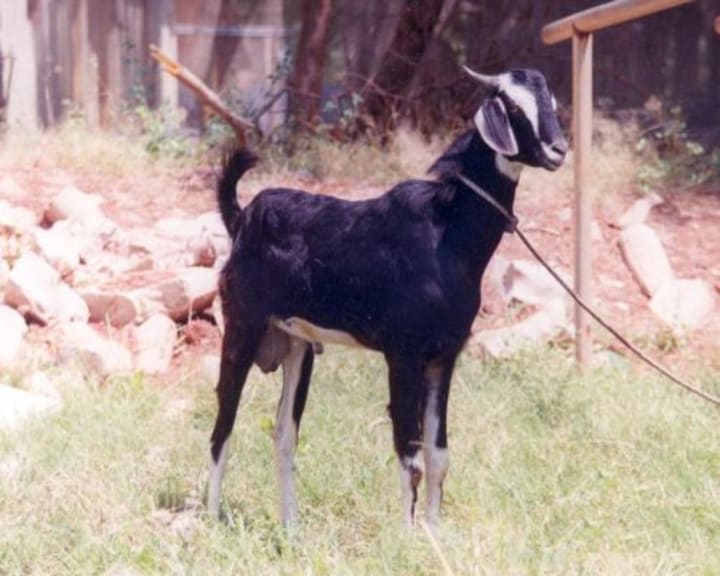
Size and Weight: Ponni goats are medium-sized, with males weighing between 30-40 kg and females around 25-35 kg.
Coat and Color: They usually have a short, coarse coat that varies in color, including shades of white, black, and brown.
Horn Structure: Both male and female goats possess horns, which are generally curved backwards.
Ears and Eyes: They have large, pendulous ears and expressive eyes, giving them a distinctive appearance.
Behavioral Traits:
Ponni goats are known for their docile nature and hardy constitution. They are well-suited for grazing in the semi-arid regions of Tamil Nadu and can thrive on a diet of shrubs, herbs, and grasses.
Rearing Practices
Rearing Ponni goats involves traditional methods passed down through generations. The practices are tailored to the local environment and resources available to the farmers.
Feeding:
Ponni goats are primarily grazers. They are often left to graze in open fields and scrublands, which are abundant in Tamil Nadu. Supplementary feeding is provided during the dry season or when grazing resources are scarce. Common supplements include agricultural by-products like rice bran, groundnut cake, and mineral mixtures to ensure a balanced diet.
Housing:
Traditional goat shelters in Tamil Nadu are simple and cost-effective. They are usually built using locally available materials such as bamboo, wood, and thatch. These shelters protect the goats from extreme weather conditions and predators. Elevated platforms are often constructed to keep the goats dry during the monsoon season.
Health Management:
Health management of Ponni goats involves regular deworming, vaccination, and routine check-ups. Common diseases affecting goats in this region include Peste des Petits Ruminants (PPR), Foot and Mouth Disease (FMD), and internal parasites. Local veterinarians play a crucial role in educating farmers about preventive measures and treatment protocols.
Economic Importance
Ponni goats are a valuable asset to the rural economy of Tamil Nadu. They contribute significantly to the livelihood of small and marginal farmers through the following avenues:
Meat Production:
Goat meat, known as "chevon," is highly prized in Tamil Nadu for its taste and nutritional value. Ponni goats are preferred for meat production due to their lean meat and favorable growth rates. The demand for goat meat peaks during festive seasons and special occasions, providing a reliable source of income for farmers.
Milk Production:
While Ponni goats are primarily reared for meat, they also produce milk, albeit in smaller quantities compared to dairy breeds. Goat milk is nutritious and used for direct consumption and the preparation of dairy products like cheese and yogurt.
Manure:
Goat manure is a rich source of organic fertilizer, which is extensively used in agriculture. The manure from Ponni goats is valued for its high nitrogen content and its role in enhancing soil fertility.
Cultural Significance
Ponni goats are deeply embedded in the cultural fabric of Tamil Nadu. They feature prominently in various religious, social, and cultural practices.
Festivals and Rituals:
Goats are often sacrificed during festivals such as Pongal, a harvest festival celebrated in January. This ritual is believed to bring prosperity and ensure the well-being of the family. In rural Tamil Nadu, offering a goat to the local deity is a common practice to seek blessings and ward off evil spirits.
Traditional Medicine:
Goat products are used in traditional medicine for their purported health benefits. Goat milk is considered beneficial for individuals with lactose intolerance and is believed to boost immunity. Goat meat is also used in various traditional remedies to treat ailments such as anemia and general weakness.
Cultural Heritage:
The rearing of Ponni goats is a reflection of the agricultural traditions of Tamil Nadu. Folk songs, stories, and proverbs often highlight the importance of goats in rural life. These cultural artifacts preserve the knowledge and practices associated with goat rearing and pass them on to future generations.
Challenges and Future Prospects
Despite their importance, Ponni goats face several challenges that threaten their sustainability and productivity.
Genetic Erosion:
There is a risk of genetic erosion due to the crossbreeding of Ponni goats with other breeds to enhance meat production. This practice can lead to the loss of unique genetic traits specific to the Ponni breed.
Disease Management:
Outbreaks of diseases such as PPR and FMD can cause significant losses to goat farmers. Strengthening veterinary services and implementing comprehensive vaccination programs are essential to mitigate these risks.
Climate Change:
Changes in climate patterns, such as erratic rainfall and prolonged droughts, impact the availability of grazing resources and water. Developing adaptive strategies, such as improved fodder cultivation and water conservation techniques, is crucial for sustaining goat farming in the face of climate change.
Economic Viability:
The profitability of goat farming can be affected by fluctuations in market prices for meat and milk. Establishing cooperatives and direct marketing channels can help farmers secure better prices for their products and reduce dependence on middlemen.
Unknown Facts about Ponni Aadu
1. Unique Climatic Adaptation:
The Ponni goat has developed a remarkable ability to adapt to the diverse climatic conditions of Tamil Nadu. This breed is particularly resilient to the hot and humid climate of the region, making it an ideal livestock for local farmers. Its coat, which can vary in thickness, helps it withstand both the scorching summer heat and the cooler winter months.
2. Superior Disease Resistance:
Ponni goats have a natural resistance to many common diseases that affect other livestock. This trait is attributed to their genetic makeup and the traditional breeding practices that have been followed for centuries. This resistance reduces the need for veterinary interventions, making them a cost-effective choice for small-scale farmers.
3. Efficient Foragers:
Unlike some other breeds, Ponni goats are excellent foragers. They can thrive on a wide variety of vegetation, including shrubs, herbs, and grasses that grow in the semi-arid regions of Tamil Nadu. This ability to utilize diverse food sources ensures their survival even during periods of drought or food scarcity.
4. High Reproductive Rate:
Ponni goats are known for their high reproductive rates. They typically give birth to twins, and in some cases, triplets, ensuring a steady increase in flock size. This characteristic is beneficial for farmers looking to expand their herds quickly.
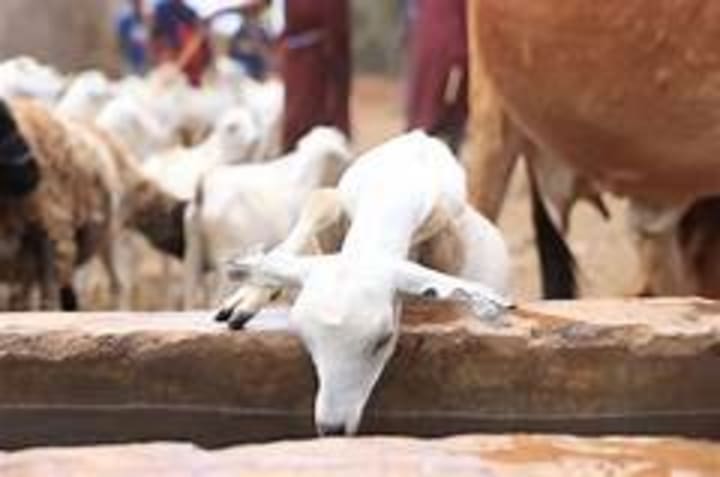
Traditional Beliefs Surrounding Ponni Aadu
1. Symbol of Prosperity:
In Tamil Nadu, Ponni goats are often considered symbols of prosperity and good fortune. Owning a healthy flock of Ponni goats is seen as a sign of wealth and stability. During auspicious occasions and festivals, goats are gifted to friends and relatives as a gesture of goodwill and blessings for prosperity.
2. Spiritual Significance:
Ponni goats hold a sacred place in the spiritual practices of Tamil Nadu. They are often offered as sacrifices in temples during significant festivals like Pongal and Deepavali. This ritual is believed to appease the deities and bring divine blessings to the community. The sacrifice of a goat is also thought to cleanse sins and bring spiritual purification.
3. Protective Charms:
In rural areas, it is a common belief that Ponni goats possess protective qualities. Farmers sometimes keep a goat near their homes to ward off evil spirits and negative energies. The presence of a goat is believed to bring positive vibrations and safeguard the household.
4. Healing Properties:
Traditional healers in Tamil Nadu attribute various medicinal properties to Ponni goats. Goat milk, in particular, is considered highly nutritious and is used in traditional remedies to treat ailments such as asthma, tuberculosis, and digestive disorders. Goat meat is also believed to have therapeutic benefits, providing strength and vitality to those who consume it.
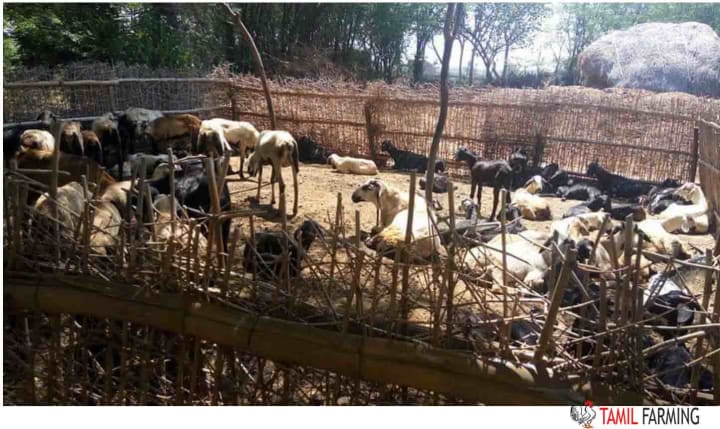
Historical Roots of Ponni Aadu
1. Ancient Breeding Practices:
The history of Ponni goats in Tamil Nadu dates back several centuries. Historical records and folklore suggest that these goats were selectively bred by ancient Tamil farmers for their hardiness and productivity. The breeding practices were based on a deep understanding of animal husbandry, ensuring the propagation of desirable traits over generations.
2. Integration with Agriculture:
Historically, Ponni goats have been an integral part of the agricultural system in Tamil Nadu. They played a crucial role in the traditional mixed farming system, where their manure was used to fertilize crops, enhancing soil fertility and crop yields. This symbiotic relationship between goats and agriculture contributed to the sustainability of farming practices in the region.
3. Role in Local Economy:
During the Chola and Pandya dynasties, Ponni goats were highly valued for their economic contributions. They were traded extensively within and beyond the region, serving as a form of currency in barter trade systems. Historical accounts indicate that goat meat and milk products from Tamil Nadu were prized commodities in ancient markets.
4. Cultural Representations:
Ponni goats have been depicted in various forms of Tamil art and literature. Ancient Tamil poets and writers often referenced goats in their works, highlighting their importance in rural life. Folktales and proverbs featuring goats reflect the cultural and social dynamics of the time, emphasizing the goat’s role in the community.
Conclusion
The Ponni Aadu of Tamil Nadu is much more than a mere livestock breed. It embodies the rich history, traditional beliefs, and cultural heritage of the region. From its remarkable adaptation to local climates and diseases to its spiritual significance and historical roots, the Ponni goat is a testament to the ingenuity and resilience of Tamil farmers. Understanding these lesser-known facts and traditions surrounding the Ponni Aadu provides a deeper appreciation of its role in Tamil society and underscores the importance of preserving this invaluable breed for future generations.
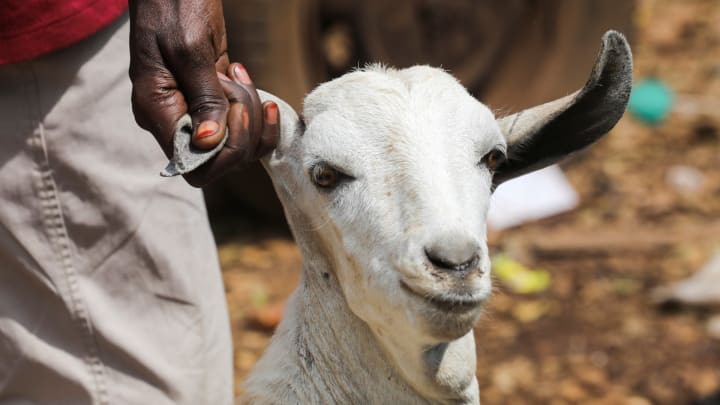
About the Creator
Enjoyed the story? Support the Creator.
Subscribe for free to receive all their stories in your feed. You could also pledge your support or give them a one-off tip, letting them know you appreciate their work.


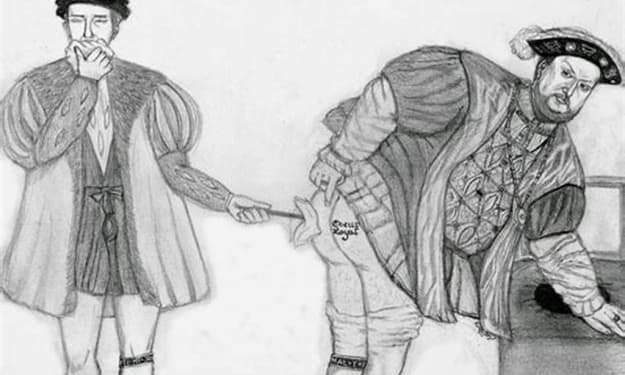



Comments
There are no comments for this story
Be the first to respond and start the conversation.